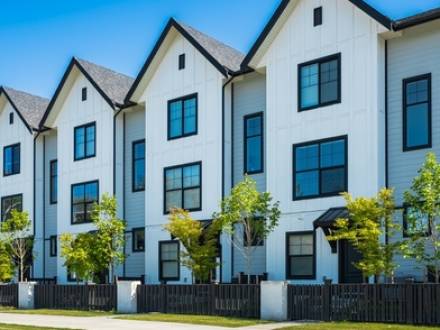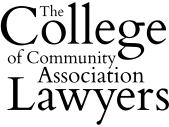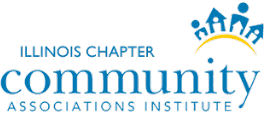 Polish,
Polish,  Ukrainian,
Ukrainian,  Russian,
Russian,  Hindi,
Hindi,  Spanish,
Spanish,  French and
French and  Greek.
Greek.
Who Is Responsible for Repairs in an Illinois Condominium?
 When something breaks in a condominium, the first question usually asked is "Who will pay for the repairs?" Whether a leaky pipe, a broken window, or a damaged roof, responsibility for repairs in a condo community depends on whether the damage occurs in a common element or a unit, as well as what the condo’s governing documents state.
When something breaks in a condominium, the first question usually asked is "Who will pay for the repairs?" Whether a leaky pipe, a broken window, or a damaged roof, responsibility for repairs in a condo community depends on whether the damage occurs in a common element or a unit, as well as what the condo’s governing documents state.
Condominium laws can be complex. Boards and property managers must understand the applicable laws to avoid disputes, delays, or legal liability while protecting the association. If you are uncertain whether your association is liable for repairs, it can be helpful to speak to a knowledgeable Arlington Heights, IL condominium law attorney.
What Are the Differences Between Common Elements and Units?
Common elements in a condominium association include shared areas such as:
- Roofs
- Hallways
- Stairways
- Storage areas
- Basements
- Electrical wiring
- Central heating and air systems
- Driveways
- Exterior walls
- Elevators
- Foundations
- Pools
- Gyms
- Clubhouses
- Landscaping
Limited common elements include areas such as HVAC units that serve only one unit but are located outside the unit's boundaries, terraces, awnings, and community patios. "Units" encompass the interior, privately owned spaces such as walls, floors, and ceilings outlined in the condo declaration. Units do not necessarily include the structural components of the building itself.
What Does Illinois Law Say About Maintenance and Repairs in Condominiums?
The Illinois Condominium Property Act (ICPA) is the state law that governs the creation and operation of condominiums in Illinois. The Act outlines rules for forming associations, their governance, financial responsibilities, and owners’ rights. While every condo owner should be familiar with the governing documents of his or her specific condominium association, the association is generally responsible for maintaining, replacing, and repairing common elements. In contrast, individual owners are responsible for unit repairs, including fixtures and interior improvements.
Examples of Who Is Responsible for Condominium Repairs
For example, suppose a roof leak damages the ceiling of an individual unit. In that case, the association will likely be responsible for the roof repairs, while the owner is responsible for any interior ceiling damage. If a pipe bursts inside a wall, this will likely be an association repair unless it affects only one unit.
If a flood in an upstairs unit affects the owner of a downstairs unit, the upstairs owner may be liable, depending on the cause of the flood. The association could step in for common element damage in this scenario. Window replacements are often a gray area that requires checking the governing documents.
The declaration, bylaws, and rules may expand or limit the association's obligations or clarify who is responsible for maintaining limited common elements. Under specific association bylaws and regulations, owners of individual units may be required to carry insurance for particular items.
What About the "Gray Areas" of Limited Common Elements?
Maintenance, repair, and replacement of limited common elements is usually the responsibility of the association unless the declaration shifts that duty to the owner of the individual unit. For example, some declarations hold the unit owner responsible for the replacement of windows and doors, while other declarations hold the unit owner responsible only for tasks such as removing leaves and snow from the front porch, but not for making any "substantive" repairs.
The declaration could also require that any maintenance expenses incurred for a limited common element be passed along to the unit to which that limited common element is assigned. This means that while the association arranges for the repairs and pays for them, the unit owner who benefits from the repairs will be responsible for reimbursing the association.
Contact a Cook County, IL Condominium Lawyer
Confusion over repair responsibilities in a condominium association can lead to conflict and costly delays. If your governing documents are outdated, or there are no clear rules on where the line is drawn between common elements and units, an Arlington Heights, IL condominium law attorney from Dickler, Kahn, Slowikowski & Zavell, Ltd. can help. Our attorneys have more than 150 years of combined legal experience. Call 847-593-5595 to schedule your initial attorney meeting.















